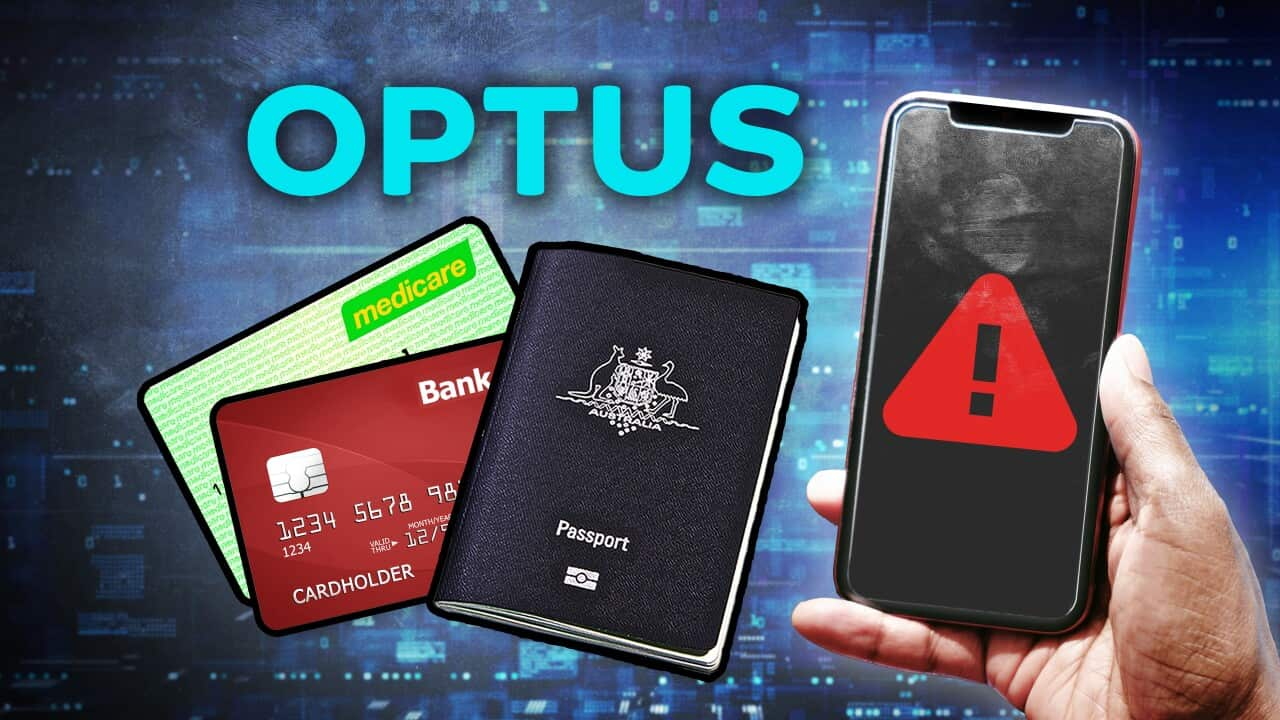Key Points
- Australians are losing millions each year to sophisticated scams.
- Scammers are impersonating trusted brands and institutions.
- Here's how to avoid getting conned.
Scams are on the rise, with Australians being conned out of more money than ever before.
Australians lost more than half-a-billion dollars to scams in 2022 according to the , with the most commonly reported.
If you want to ensure you don't get scammed, here's what you need to look out for.
Road toll scams
Scammers are pretending to be toll road operators like Linkt, sending texts claiming recipients have overdue or unpaid fees.
The Australian Communications and Media Authority (ACMA) said people who receive threatening messages claiming they have an overdue toll road account or insufficient funds should beware.
"Scam messages may come from an unknown number or have the word 'Linkt' in the sender display details to make them appear genuine," the ACMA said.

Scam text messages like this warn recipients about unpaid toll fees. Source: SBS News
"If you are in any doubt about whether a message you have received about your toll road account is genuine, do not click on any links or rely on the information in the message."
ACMA said customers should instead log into their account or use a verified app from the company to check their recent activity.
Uber scams
Scammers are also posing as Uber and sending text messages to unsuspecting victims in an attempt to swindle money out of them.
The messages may claim there's unusual activity on your account, or that your payment has been unsuccessful, according to Scamwatch.
"They all contain a malicious link to a website that will steal your details," it said.
Scamwatch advises recipients of such messages not to click the link, but instead check your Uber account via the app.
'Hi Mum' scams
is still going strong, according to Scamwatch.
Figures from the ACCC show more than 11,000 incidents of the scam were reported last year, amounting to losses of over $7.2 million.
The dupes victims into sending money to cybercriminals by typically posing as their children.
Perpetrators usually send a message via WhatsApp or SMS pretending to be a friend or family member who has lost their phone or got a new number.
The scammers then claim to be locked out of their online banking system, and ask the victim to send them money.
There are several different versions of the scam, but all rely on victims being willing to help a loved one in need.
If you receive a message like this, Scamwatch advises calling your loved one on their usual phone number to confirm it is really from them before sending any money.
myGov scams
Scammers are increasingly posing as government organisations to con people, with Scamwatch recording 160 per cent rise in January of reports of people posing as myGov.
It said people should be wary of emails and messages that appear to be from myGov saying they're eligible for a refund or a rebate of any kind.
Scamwatch also warned against accessing myGov by clicking a hyperlink included in an email or message.
ATO scams
Scammers are also using social media to pose as government organisations, like the Australian Taxation Office (ATO).
"We're seeing an increase in fake social media accounts impersonating the ATO, our employees and senior executive staff across Facebook, Twitter, TikTok, Instagram and other platforms," the organisation said in January.
"These fake accounts ask users that interact with the ATO to send them a direct message so they can help with their enquiry. The people behind these fake accounts are trying to steal your personal information, including phone numbers, email addresses and bank account information."
The ATO said the best way to verify the account is an official one is to check how many people follow it, how many posts it has, and make sure any email addresses provided to you end with '.gov.au'.
"Our social media channels have been operating for around 10 years – if it's a newly created account, or only has a few posts, it's not us," it said.
Rental scams
With Australia in the midst of , it can be tempting to grab any opportunity you can to secure a rental.
But to avoid any doubt that , Scamwatch advises making sure you've inspected the property before paying any money.
It also suggests checking if the property is listed in multiple places as scammers "steal photos from genuine rental sites".
Telstra and Optus scams
Australians are also being scammed through emails claiming to be from telecommunications companies, according to ACMA.
It said Telstra customers should be wary of any unexpected emails they receive asking them to complete a 'Know Your Customer' compliance form to avoid disruption or cancellation of their service.
"If you've received this email do not download or open the attachment or any links in the message," ACMA said.
"If you are in any doubt about whether an email you have received from Telstra is genuine, contact Telstra via its publicly available contact details or verified app."
Similar advice applies to anyone who receives an email allegedly from Optus that asks them to click a link to update or confirm their details for "security reasons".
ACMA said other examples of Optus email scams include being sent what appears to be a payment reminder where you're asked to click on a link to pay an outstanding bill or update your payment method.
"Common among all of these scam messages is a sense of urgency — that if you do not act quickly, your account will be closed or suspended, or your service disconnected," it said.
"These scams are designed to steal your personal and financial information. Optus advise that they will never ask for your personal or sensitive information via email or messages."
Recruitment scams
In the final months of last year, the ACCC saw a "significant uptick" in reports and losses associated with recruitment scams.
These kinds of scams typically involve someone pretending to be hiring on behalf of high-profile companies and online shopping platforms, and impersonating well-known recruitment agencies.
The scammer will often ask for a payment in exchange for a guaranteed income, Scamwatch said.
"If you are job hunting and you are offered work that requires little effort for a big financial reward, it is most likely a scam," ACCC deputy chair Delia Rickard said.
"This might include repeatedly clicking a button on a website or app to purchase products or submit reviews."
Facebook Marketplace scams
Social media users have reported scammers using PayID to con vendors on Facebook Marketplace.
Heritage Bank sent out an alert to customers in January warning them of how the scam operates.
It said unscrupulous buyers tell vendors that they are unable to meet in person and instead, their relative or friend would meet them.
"Scammers then send a fake PayID email to the seller," the bank said.
"This fake email states there was an issue receiving payment because PayID limits exist on non-business accounts.
"The seller must first transfer funds to increase their PayID limit so they can receive the payment. As soon as this is done, they are promised they will receive a refund and the buyer’s payment.
"Instead, unsuspecting sellers are tricked into paying money to scammers."
The trick has also been used on digital classified marketplace Gumtree.
Weight loss drug scams
Online scammers are seeking to capitalise on the demand for Ozempic, which is not only life-saving medication for diabetics, but also being used “off-label” by others to lose weight.
Australia's health product regulator, the Therapeutic Goods Administration (TGA), that the scams are tricking people into entering personal or payment details online to buy products that don't exist.
The TGA said it is investigating some websites claiming to sell semaglutide, trading as Ozempic, with reports customers aren’t receiving a product at all, or finding what they've received is an alternative drug.
Advertising of Ozempic is banned in Australia, with the TGA saying people should only seek to buy the drug from pharmacies, with a valid doctor's prescription.
It said unapproved products disguised as semaglutide are being imported into Australia and intercepted by Border Force.
"These products are currently being tested at the TGA labs," a spokesperson said.
Additional reporting by Jessica Bahr, Stephanie Corsetti, and Tom Canetti.
To report scams and learn more about how to get help visit













